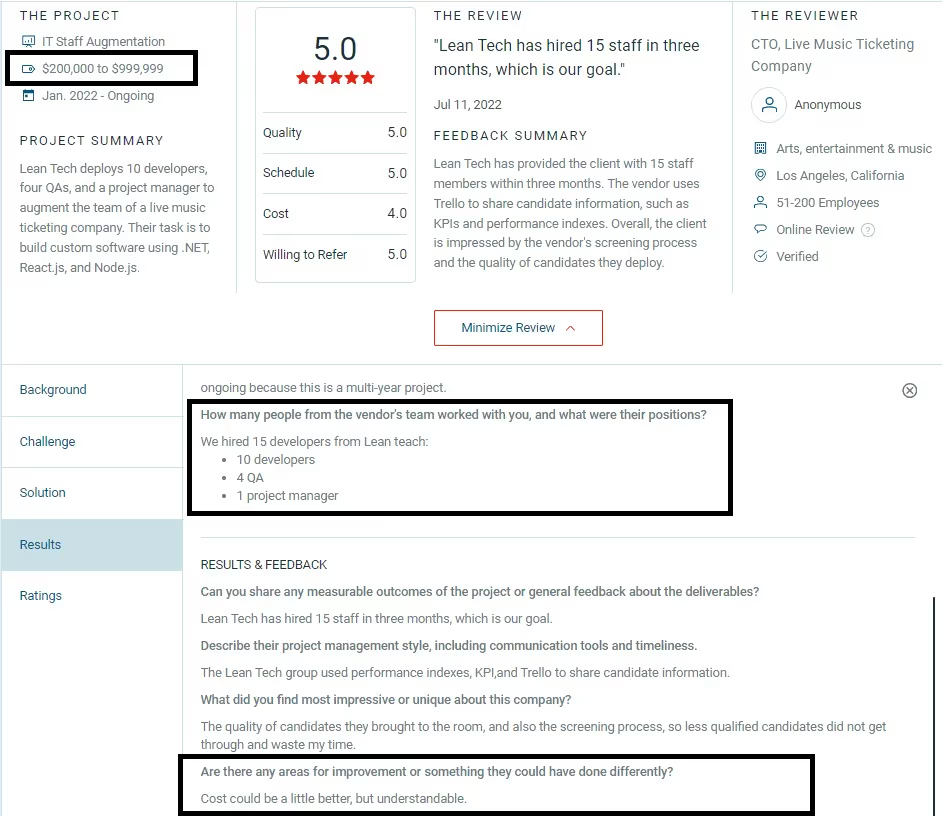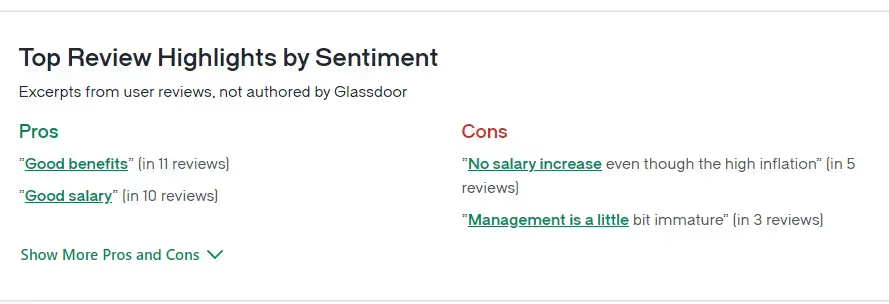In the competitive landscape of tech talent acquisition, discerning companies often find themselves navigating through a maze of pricing structures that can sometimes obscure more than they reveal. LeanTech, with its established presence in the tech talent platform and IT project-based staffing sectors, presents a compelling proposition.
However, a closer examination of their pricing strategy reveals a complexity that may leave potential clients pondering the transparency and flexibility of their offerings. This is where Teilur Talent steps in, offering a beacon of clarity and a model of straightforward pricing that stands in contrast to the murkier waters navigated by others in the industry. As we delve into the specifics of LeanTech's pricing model, it's worth considering how Teilur Talent's approach might serve as a valuable benchmark for what companies can expect when seeking professional and bilingual developers through nearshore outsourcing companies.
LeanTech Cost for Companies in the U.S.
LeanTech, headquartered in Medellín, Colombia, and extending its reach across Latin America, promises U.S. companies access to a global workforce at a fraction of domestic costs. While this proposition is attractive, the actual cost-effectiveness of their services, when the veil of "flexible pricing" is lifted, often hinges on the fine print. LeanTech's model, which adjusts to client budgets, may initially seem accommodating, but a deeper dive into their fee structure suggests a potential for opacity in the true cost of engagement.
Prices and Contracts:
- Charge for Roles: The pricing is flexible, allowing clients to determine the budget, and Lean Tech adjusts accordingly.
- Fee disclosure: The disclosed fee on the site covers all costs; no additional commission to candidates is mentioned.
- Candidates on client's payroll: Uncommon, as Lean Tech provides benefits.
- Minimum commitments/contracts: No commitment until onboarding; flexibility is emphasized.
- Client protection: No payment required if a candidate leaves abruptly; payment only for hours worked correctly.
LeanTech Pricing Review
The disclosed fees on LeanTech's site are designed to cover all costs, with no additional commissions mentioned. However, the absence of a detailed breakdown raises questions about the transparency of their pricing. Reviews on platforms like Clutch and Glassdoor provide further insights into client and employee perspectives on LeanTech's cost structure.
On Clutch, a review from a CTO who hired 15 talents over three months mentioned costs ranging between $200,000 and $999,999. Breaking down these figures suggests a significant investment per candidate, potentially daunting for startups or companies in the early stages of team development. The CTO suggested that LeanTech could improve its pricing to be more accessible.

Glassdoor reviews, with a 4.3 rating from 164 reviews, highlight a discrepancy between the salaries reported by employees and the charges to clients. Despite charging clients at rates that some may find elevated, employees have reported dissatisfaction with salary increments, especially in light of inflation. This contrast raises concerns about the value distribution within LeanTech's pricing model and suggests areas for potential improvement in balancing client charges with employee compensation.

These reviews underscore the need for potential clients to approach LeanTech with a clear understanding of their budgetary constraints and to seek detailed breakdowns of costs upfront. The feedback from Clutch and Glassdoor highlights the importance of transparency and fairness in pricing, not only for clients but also in how it reflects on employee satisfaction and retention.
Our Thoughts on the Pricing Structure of LeanTech
LeanTech's emphasis on flexibility and market adaptation is commendable, yet the absence of clear, upfront pricing details could be a stumbling block for companies seeking transparent and predictable cost structures. The reliance on account managers for candidate replacements and hour tracking further complicates the client's direct oversight of their investment. In contrast, Teilur Talent's transparent pricing model and direct client involvement in candidate selection processes offer a refreshing alternative that could appeal to companies wary of hidden costs and seeking greater control over their staffing solutions.
Conclusion
As companies in the U.S. continue to seek out tech talent platforms and IT project-based staffing solutions, the clarity and predictability of pricing structures remain paramount. LeanTech, with its broad service portfolio and flexible approach, offers significant value, but its pricing model may benefit from greater transparency and simplicity. On the other hand, Teilur Talent emerges as a compelling choice for those prioritizing clear, straightforward pricing and direct involvement in the staffing process. In the quest for professional and bilingual developers through nearshore outsourcing, the decision between LeanTech and Teilur Talent will ultimately hinge on the balance each company seeks between cost, transparency, and control.







